How a Probation Violation Turns Into Indefinite Jail Time
Probation detainers are forcing tens of thousands of people to remain in jail indefinitely.
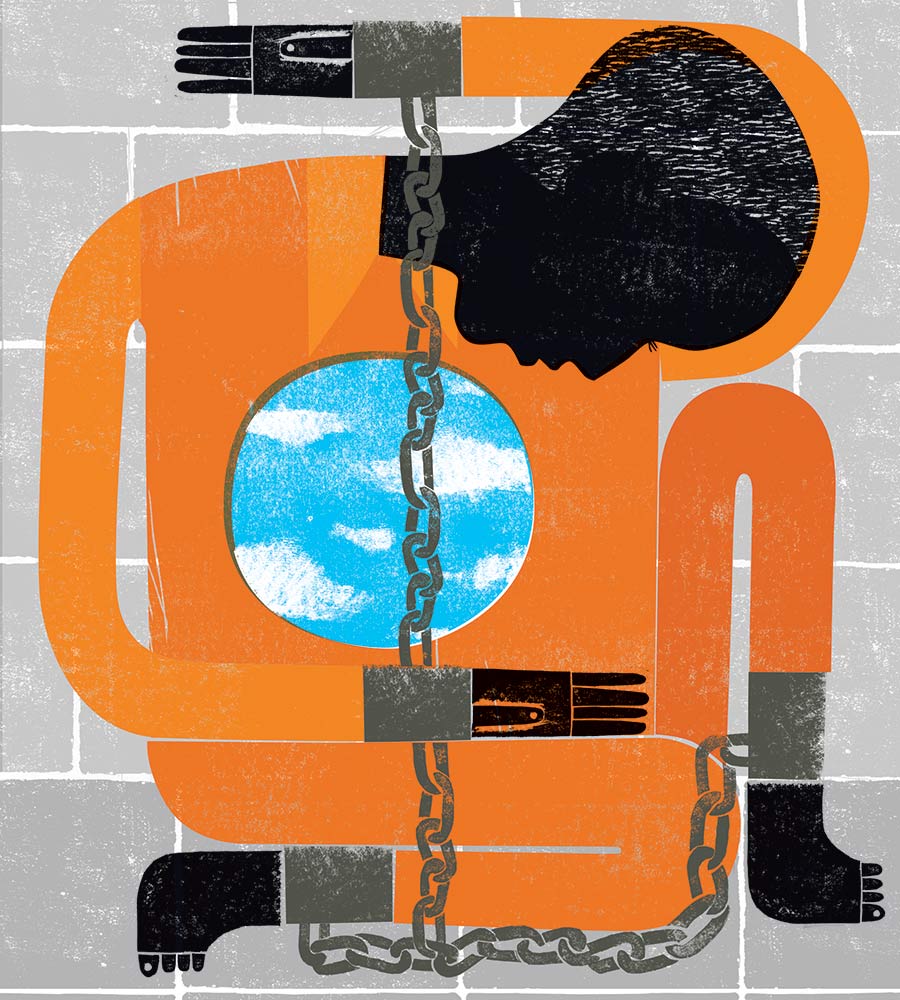
In February 2022, Damon Jones, then 23, was pulled over while he was driving in Allegheny County, Pennsylvania. The officers found a firearm in his car and took him to jail. Jones was charged with two weapons violations. A judge set his bond at $25,000, which Jones was able to meet after his family paid a nonrefundable deposit to a bail agent and his girlfriend offered her house as collateral. He was released later that day to fight the gun charges from home.
But two days later, police swarmed his girlfriend’s house and arrested a confused Jones for a second time. Although he’d already met bail and been released, he was booked back into Allegheny County Jail (ACJ), a notorious and sometimes deadly facility in Pittsburgh.
More than two years later, Jones is still in ACJ awaiting trial. He remains ineligible for release.
Jones was rearrested in 2022 because his gun charges counted against him in two ways. First there were the criminal charges, for which he paid his bail and is still awaiting trial. But like nearly 3 million other Americans, Jones was on probation—in his case, stemming from a plea deal that he took in 2021 over a statutory sexual assault charge—and possessing a weapon was a violation of his probation terms. After learning of Jones’s new gun charges, the court filed a probation detainer, or an order to keep him in jail. Once a detainer is lodged, there is no possibility of release until the judge overseeing the original probation sentence decides to lift it.
People with probation detainers are not jailed because of the seriousness of their new charges. If it hadn’t been for his detainer, Jones would have been able to await trial for the gun charges from home. But his probation judge denied his request to lift the detainer, leaving him to wait in jail until his new criminal charges are resolved—a process that has been mired in delays.
Although people jailed on probation detainers are pretrial defendants who have not been found guilty on any new charges, they have fewer rights than other defendants, who at least in theory can be jailed only if they pose a flight or public safety risk. In Allegheny County and elsewhere across the country, tens of thousands of people are being held in jail for alleged probation violations—in many cases, for violating terms that are not otherwise illegal, such as missing a meeting with a probation officer.
Reform advocates argue that counties should encourage probation compliance with incentives and address any violations with graduated sanctions, and that detainers should be used only as a last resort. Instead, detainers are issued frequently, and they have been an often overlooked driver of incarceration since the days of Richard Nixon’s “tough on crime” administration. Advocates also argue that people are being jailed unnecessarily. In 2020, when Allegheny County released 995 people in the early weeks of the Covid pandemic, including 339 on probation detainers, the cohort had a significantly lower recidivism rate than the county’s average.
Unlike cash bail and other forms of pretrial detention, probation detainers involve a complicated process, complete with its own jargon. This means that when the media has an opportunity to shine a spotlight on their devastating effects, they often miss it. Take Kalief Browder, the 22-year-old New York City resident whose tragic story reached a national audience when it was reported on by Jennifer Gonnerman for The New Yorker. As a teenager, Browder had been wrongly accused of stealing a backpack and spent three years in jail on Rikers Island, including significant time in solitary confinement, and died by suicide after his release. Since his death in 2015, his family’s advocacy has spurred efforts to reform the bail process and the use of solitary confinement in New York City. But probation detainers were an equally devastating part of Browder’s story: His theft charge for allegedly stealing a backpack was a probation violation; that made him ineligible for his initial bail offer, which was already unaffordable for his family at $3,000.
Detainers are used by probation departments all over the country: In mid-2022, nearly 14 percent of the 663,100 people in local jails were there for violating probation, and an additional 5 percent for violating parole, a similar period of supervision at the end of some prison sentences. In Allegheny County, the figure is even higher: 669 people were in jail on a probation detainer as of mid-August, making up 35 percent of the jail population. People with probation detainers for new charges are stuck in the county jail for an average of 149 days—nearly five months.
Like other issues tied to policing, probation affects some communities far more than others. Black, Latinx, and Native people and those in low-income neighborhoods are more likely to be stopped, frisked, and threatened with force by police; to become entangled in the justice system at almost every level; and to end up on probation. In a 2014 study, 46 percent of Black men ages 24 to 32 without a high school diploma reported having been on probation at some point in their lives, compared with 28 percent of those with a diploma and 15 percent of all 24-to-32-year-olds. In Allegheny County, Black people make up less than 13 percent of the population but 42 percent of those on probation. Once on probation, the county’s Black residents are more likely to have a detainer for a new charge filed against them than white residents and more likely to have their probation sentences revoked.
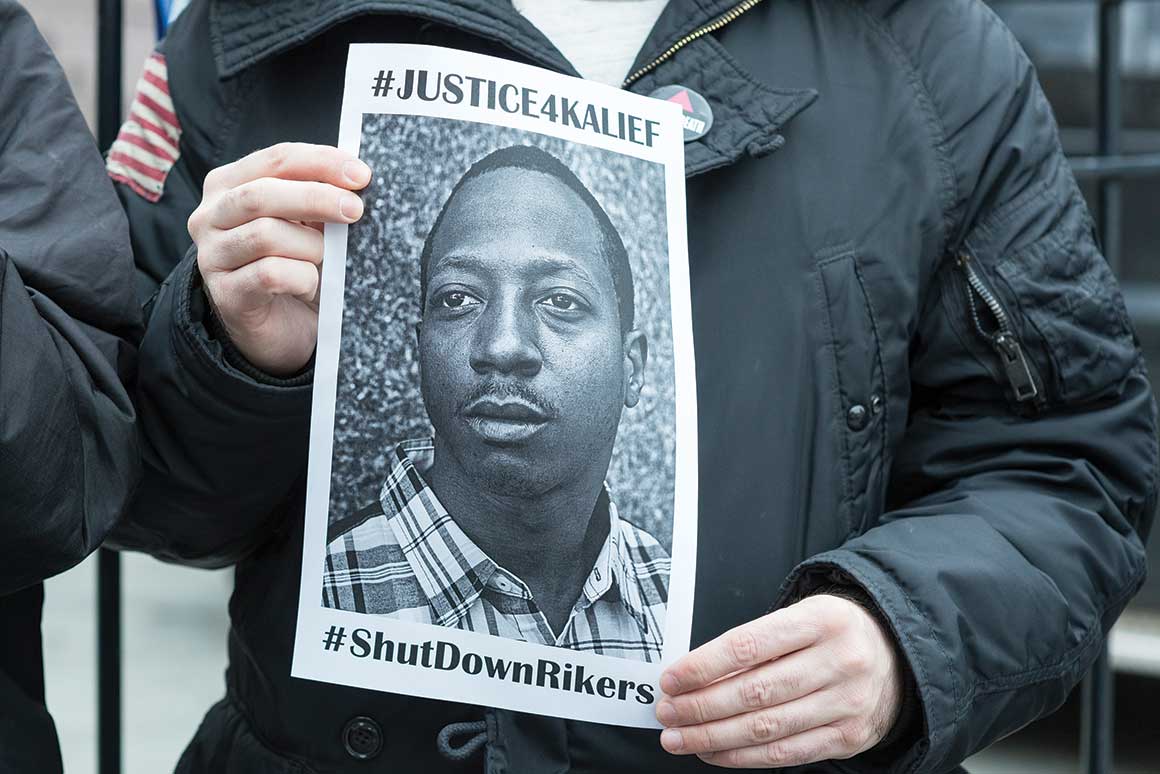
The Supreme Court mandates that people accused of probation violations get two hearings. The first, called a Gagnon I hearing in Pennsylvania, must be held “as promptly as convenient after arrest” to determine whether there was probable cause for finding a violation, and if so, whether to uphold or lift the detainer. In other words, this initial hearing determines whether someone will be jailed for an indefinite period. Following Jones’s cursory Gagnon I hearing, which was held as a video conference, the judge ruled against lifting his detainer.
That decision was issued after Jones’s court-appointed defender made no arguments in his defense and no one presented any facts or evidence about the case. This is surprisingly standard: According to data collected by volunteer court watchers and compiled in a 2022 lawsuit, between January 2021 and September 2022, 44 percent of Gagnon I hearings in Allegheny County lasted less than five minutes, and 19 percent lasted less than two.
As a result, Jones must remain in jail until his Gagnon II hearing—which will not take place until his criminal charges are resolved. At the Gagnon II, the judge will determine whether a “preponderance of evidence” indicates that the violation occurred, and if so, whether to revoke his probation altogether. Unlike in criminal court, there is no mandated presumption of innocence. Probation officers are allowed to present unsubstantiated rumors and, in some states, illegally obtained evidence.
Being forced to remain behind bars affects all aspects of a person’s life. Jones worries that his absence has caused his life on the outside to fall apart. He lost his home, his belongings, and his beloved German shepherd, Mamas. “I lost a whole bunch of things,” he said. “I even lost people who needed me out there.” He has mourned two deaths since he’s been incarcerated: a close uncle and a friend who died by overdose. His twin brother is coping with mental illness and homelessness. “He keeps telling my mom, ‘I need him out here’—like he can’t move on in life without me,” Jones said. “It’s been two years since I’ve been in this jail fighting this case. And it’s making me so angry that I can’t do nothing. I can’t do nothing.”
In many ways, Jones’s experience is far from unique. In fact, probation is the most common criminal sentence in the United States. In 2021, one in 69 adults nationwide were on probation or parole, known as “community supervision.” The vast majority on probation never had a trial but instead accepted probation as part of a plea deal. While it’s intended as an alternative to incarceration, probation often “widens the net” of mass punishment by affecting people who would never have been sentenced to jail—and certainly not to long-term incarceration—in the first place, said Michelle Phelps, a University of Minnesota professor who studies the sociology of punishment.
Once they’re on probation, people typically have to comply with 18 to 20 rules and conditions, which makes for a highly stressful experience. Many have to pay fees, wear electronic monitoring bracelets, and submit to drug tests and a ban on drinking alcohol, even if their charges have nothing to do with substance use. They may have to find and maintain full-time employment—an exceedingly difficult requirement for probationers who work an off-the-books gig—or be required to attend meetings or classes that interfere with work or childcare. Even violating conditions like changing their residence without permission can lead to a probation detainer and jail time.

Probation was not always so punitive. But during the Nixon administration’s War on Drugs, probation caseloads grew alongside a rapidly expanding prison population. “Instead of an opportunity to restore lives, release on parole or probation became a privilege that could be taken away [for] any violation, no matter how trivial,” notes the Brennan Center for Justice.
Many people fail to complete probation successfully. In 2021, 44 percent of state prison admissions nationwide were for probation or parole violations. People on probation are disproportionately likely to experience life challenges that contribute to incarceration, including poor health, substance-use disorders, mental health issues, and other disabilities, after controlling for demographics. More than 65 percent make less than $20,000 annually, and nearly 40 percent make less than $10,000.
“Probation is inconsistent with people’s lived experiences in very poor neighborhoods,” Phelps said. For example, “a lot of folks will feel pressure to carry a weapon in order to defend themselves…. I think people have a hard time viscerally identifying with that feeling of stark, physical insecurity if they’ve lived in relative privilege their whole lives.”
Also, as Phelps points out, “There are all kinds of violations that are pretty much automatic if you live in a heavily surveilled community.” For instance, failing to quickly report contact with a police officer is often a violation. So is interacting with “known felons.” One man expressed frustration about this requirement in a focus group held by Phelps and a colleague. “He said, ‘My cousin’s got felonies,’” she recalled. “‘Are you telling me I can’t go to my grandma’s house for Thanksgiving? That’s a crime?’”
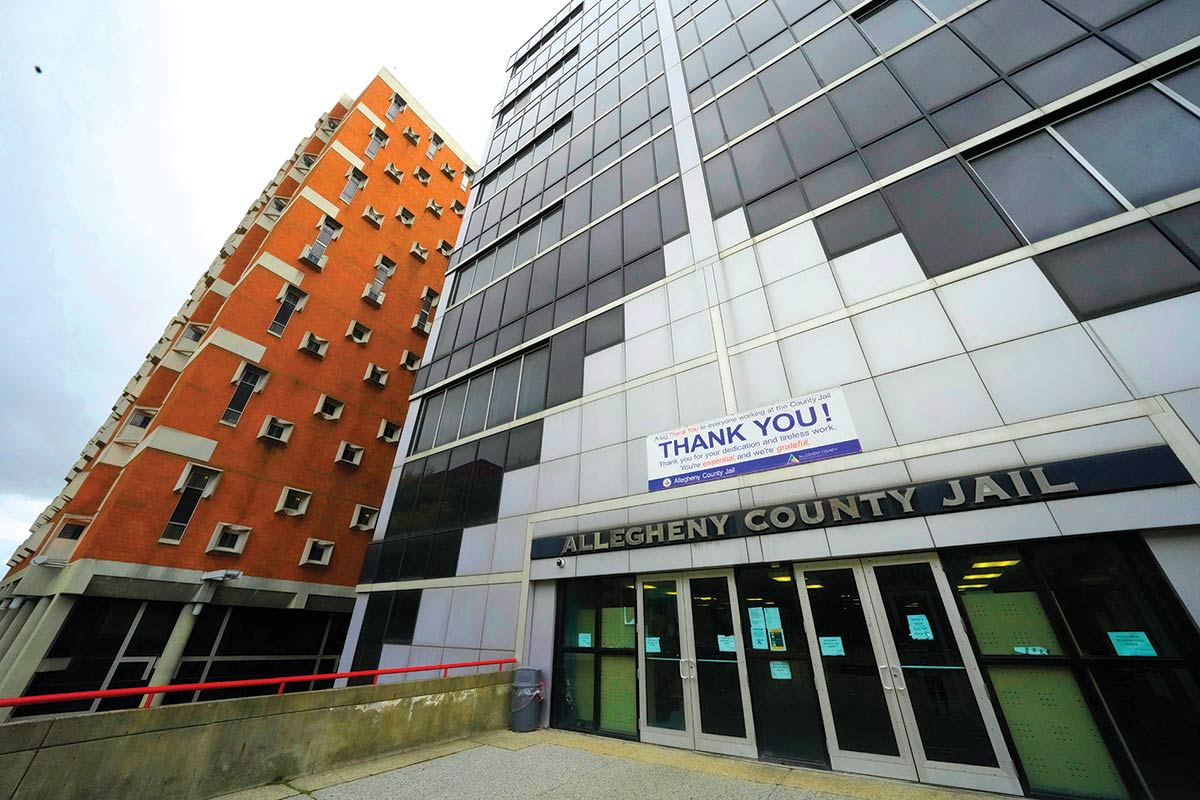
Bethany Hallam, 34, had never heard of probation detainers until she was jailed on one. After tearing both of her ACLs playing lacrosse in high school, Hallam became addicted to the opioids she was prescribed, and she eventually turned to heroin. In 2015, she was caught selling her prescription Suboxone, a drug used to treat narcotics addiction, to fund her heroin addiction. She was sentenced to probation.
But Hallam continued using and failed a weekly urine test. She was taken straight to Allegheny County Jail.
“Most of the women that I was sitting in intake with were also going through detox,” Hallam said. “Because that’s who we criminalize in this country. That’s who the county jails are filled up with—people who are actively using drugs, who are suffering from mental health diagnoses and substance-use disorders. We were all really sick. Wrapping our arms and legs in toilet paper to try to keep warm, throwing up on the floor. People were having vile diarrhea right next to us, because the toilet is in the middle of the room.
“I thought they’d teach me a lesson, make me sit for a week or two, and that would be the end of it,” she continued. Instead, Hallam remained in ACJ for five months on a probation detainer.

“The absolute worst part was that I had no idea when I would go home,” she recalled. “I had nothing to look forward to. I had no date that was like, ‘This is your minimum, or this is your maximum, or this is your release date.’ It was literally just waking up every single day, hoping. And eventually you stop hoping and just think you’re never going to get out.”
After Hallam had spent months in ACJ, a private attorney hired by her parents filed a motion to have her moved to the Renewal Center, an alternative housing program next to the jail, where she completed rehab and was eligible for work release. After 60 days, she was released, and she’s been sober in recovery for more than seven years. In 2019, Hallam was elected to the Allegheny County Council, where she’s become an outspoken advocate for jail reform as a member of the Jail Oversight Board.
Hallam frequently hears from people jailed on probation violations. In some cases, she said, the underlying new criminal charges have been withdrawn or dismissed, but the judges and probation officials “don’t care that those charges were dropped. They don’t care that there is zero evidence against you for those charges. Nothing of the sort is discussed” in the Gagnon I hearing. So people remain in jail awaiting a Gagnon II.
Popular
“swipe left below to view more authors”Swipe →Even a few days in jail can be deeply destabilizing. People experience stress, trauma, exposure to disease or violence, poor medical care, and a lack of nutrition and exercise. ACJ is particularly notorious. In recent years, lawsuits, investigative journalism, and surveys of incarcerated people have revealed inadequate medical treatment, physical abuse by staff, mistreatment of people with psychiatric disabilities, insufficient food, and unsanitary conditions. One woman claims she was bitten by a rat while sleeping on a cell floor. In response to questions about conditions in the jail, a spokesperson told The Nation that “the jail investigates claims and takes corrective action when deemed necessary.”
At times, incarceration turns deadly. Since 2020, 17 people have died while jailed in ACJ, and news outlets have counted at least another eight who died shortly after their incarceration. At least five were being held on probation detainers.
One of them, Gerald Thomas, entered Allegheny County Jail in 2021 under circumstances similar to Jones’s: The 26-year-old father of four was on probation when officers found a weapon in his possession during a traffic stop. Thomas was booked on criminal charges and offered bail, but he was unable to go free once the court lodged a probation detainer.
Finally, after Thomas had spent 10 months in jail, his attorney argued successfully that the vehicle search had been illegal, and so the charges were dropped. But Judge Anthony Mariani, who was overseeing Thomas’s probation, declined to lift the detainer and moved ahead with a Gagnon II hearing. At the hearing, Mariani told Thomas that he wanted to send him to prison, stating, “I have to put you in the cage, lasso you, corral you, stuff you, because you won’t quit.” He sent Thomas back to jail for a period of 30 days while he decided whether to lift the detainer.
But Thomas didn’t make it that long. Seventeen days after the Gagnon II hearing, Thomas collapsed in the jail from a pulmonary embolism. After staff initially thought he was overdosing and gave him a shot of Narcan, he was taken to a hospital and pronounced dead.
Rahdnee Oden-Pritchett, 25, says he was traumatized by the violence he witnessed while incarcerated on a probation detainer in ACJ from September 2022 to April 2023. He’d been one month away from completing a two-year probation sentence for the unlicensed possession of a firearm when he was arrested on charges of attacking his ex-girlfriend—charges that he eventually pleaded guilty to yet still disputes. Although the judge overseeing his new criminal case set the bond at $10,000, Oden-Pritchett—like Jones and Thomas before him—continued to be held in jail after his probation judge, Kelly Bigley, declined to lift his detainer.
While awaiting his Gagnon II hearing, Oden-Pritchett witnessed violence that left him depressed and unable to sleep. “I never saw a person be stabbed, ever in my life, until last year,” he said. “I’m sitting there, eating my breakfast. And next thing I know, I just see seven people fighting. All of them had a knife. Every single one…. There was blood everywhere. There was a biohazard team that had to come in…. That’s stuff that can literally traumatize somebody.”
He also suffered flare-ups of psoriasis, a painful skin condition. He had no idea when he would be able to return home.
Oden-Pritchett’s trial was scheduled for January 2023, but was pushed back to March. He accepted a plea deal for more probation. “All that waiting and all that time, and just not knowing what’s going on, when you’re going to get to go home—it all added on to why I accepted a guilty plea,” he said. “I just wanted to go home, and I knew that if I took this plea and took probation, it could all be over with.”
After he took the plea deal, Oden-Pritchett said, his trial judge told him she would release him that day if she could. But it was out of her hands, because his Gagnon II hearing wasn’t scheduled to take place until later that month. Then it was pushed to April. “I didn’t know if I was going to sit in there for maybe a few more months, or a few more years,” he said. “I started to get scared. I really started to feel like, ‘Well, now it might not ever end.’”
After he’d spent about eight months in jail, Judge Bigley lifted his detainer, and Oden-Pritchett finally returned home.
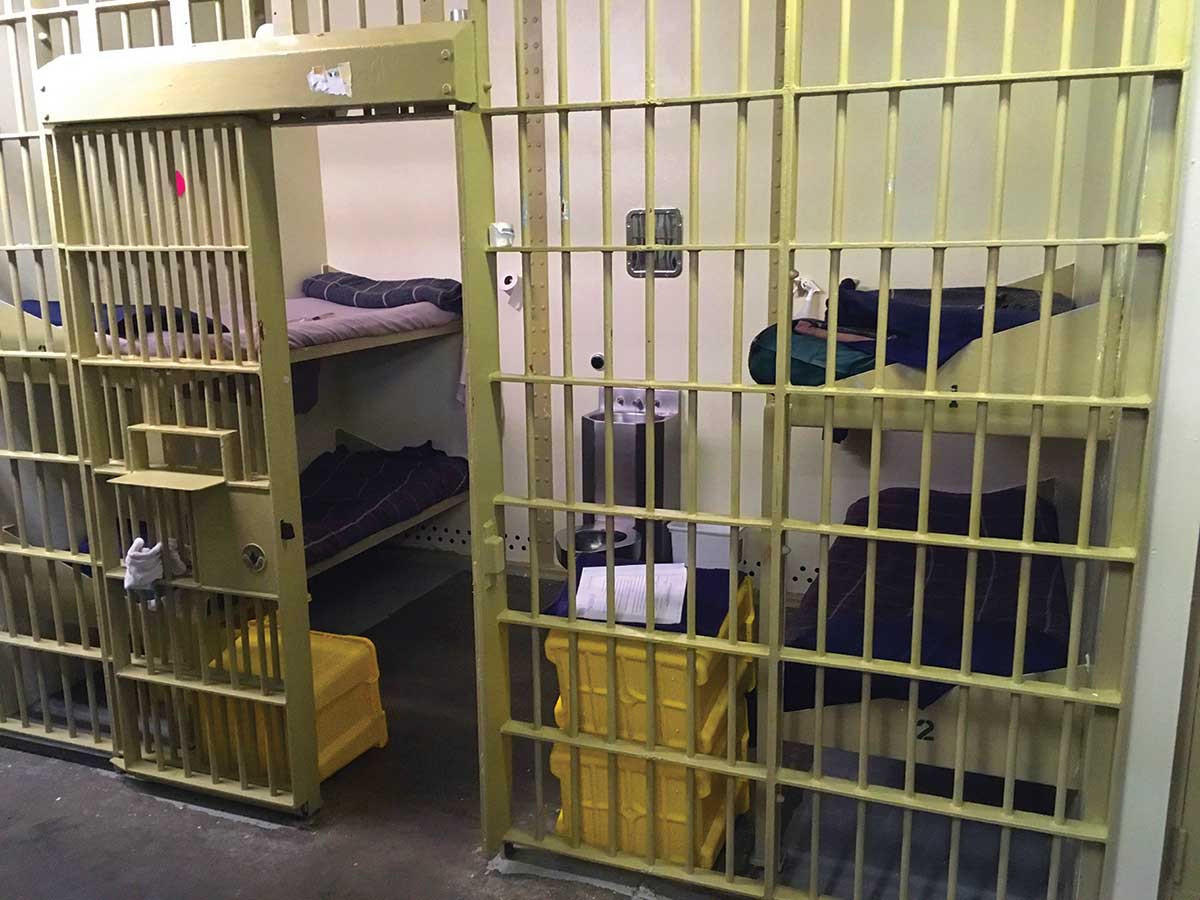
In 2022, Oden-Pritchett, Jones, and several others jailed on probation detainers sued in federal court, maintaining that Allegheny County judges and probation officials were violating their constitutional rights. The suit, which was brought by Civil Rights Corps and the Abolitionist Law Center, argued that it is unconstitutional for the county to keep people in extended pretrial incarceration without any consideration of whether they pose a flight or public-safety risk.
The lawsuit also alleged that two judges had blanket “no-lift” policies when it came to probation detainers, meaning that they declined to lift such detainers in almost every case they heard. People whose probation violations were overseen by Mariani, who has since retired and was therefore dismissed as a defendant, were detained in jail 94 percent of the time, and 96.3 percent of those supervised by Bigley were detained.
In February, some counts in the lawsuit were dismissed by US District Judge J. Nicholas Ranjan. He issued summary judgment in favor of the defendants in others, ruling that Supreme Court precedent does not require probation violation hearings to consider eligibility for release. The plaintiffs have filed an ongoing challenge with the US Court of Appeals.
“When people think of pretrial detention, they think of cash bail, they think of a lot of other things—and not the fact that probation detainers are the number one reason in a lot of counties that people are held pretrial,” said Dolly Prabhu, a staff attorney at the Abolitionist Law Center who is involved in the suit. “It’s so unnecessary, and it’s so harmful.”
In her work on the sociology of punishment, Phelps has noticed an increase in advocacy efforts to reform probation over the past decade. In 2021, according to a Pew analysis, at least 20 states enacted legislation to reform community supervision.
In Pennsylvania, a 2023 law mandated several reforms, including limiting when detainers can be issued for technical probation violations. The bill had been supported by Meek Mill, a rapper turned activist who spent much of his 20s on probation and has been jailed in Pennsylvania for minor violations such as popping a wheelie on his motorcycle. However, advocates were split on the bill, with many arguing that it will do little to address the underlying problems with probation. Elsewhere in the state, the ACLU sued Montgomery County, northwest of Philadelphia, in 2021 for keeping people jailed on probation detainers for an average of 70 days before even receiving a Gagnon I hearing. That lawsuit is stayed, based on a 2022 agreement with the county to speed up the hearings and make other probation reforms.
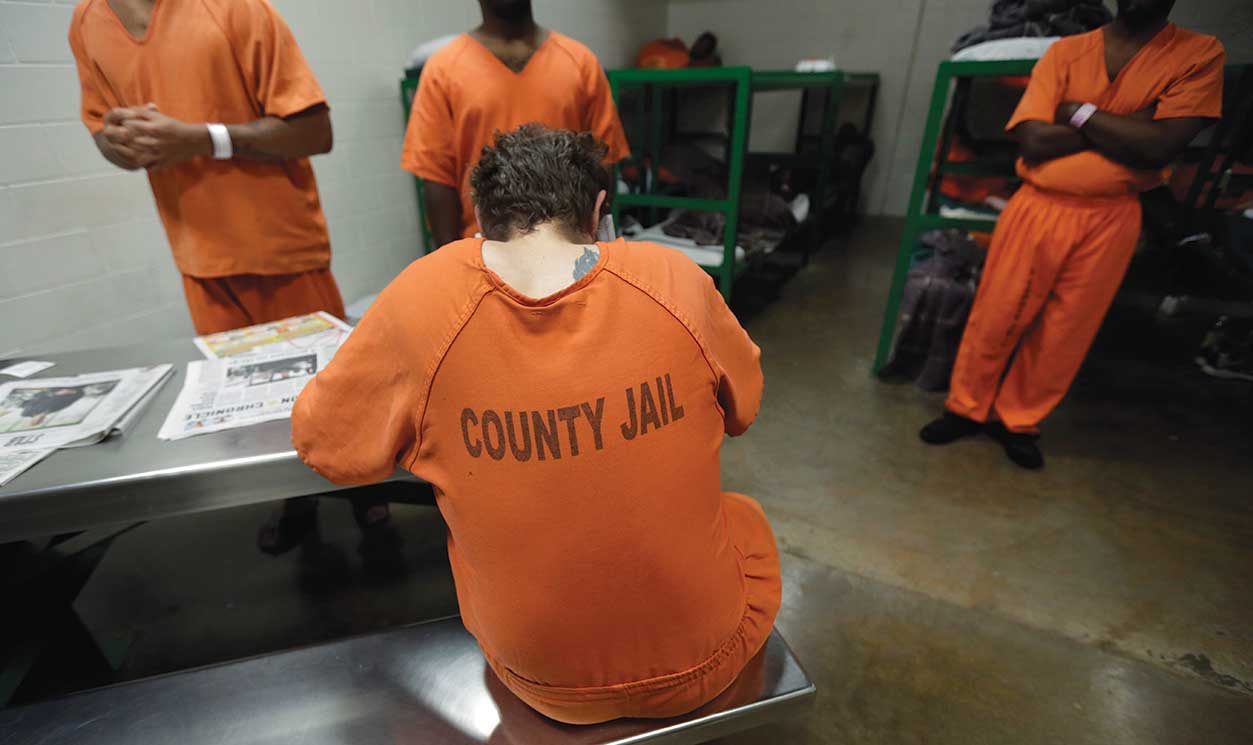
One promising model is New York City, which drastically reduced the number of people on probation, from more than 68,000 in the mid-1990s to 24,000 in 2021, a drop that occurred alongside falling crime rates. During that time, the city began allowing for shorter probation sentences, granting more probationers early release for compliance, and letting low-risk clients report via electronic filing.
Phelps argues that there needs to be structural reforms to the probation system as a whole, such as putting fewer people under community supervision in the first place, capping probation sentences, doing away with onerous conditions, and not jailing people who are otherwise eligible for release on their new criminal charges, like Damon Jones. She notes that most advocacy has focused on ending detainment for technical probation violations. While this is a needed development, Phelps cautions that addressing technical violations alone will leave many people languishing in jail on detainers for new criminal charges.
Such is the case with Jones, who said he has faced retaliation over his involvement in the probation lawsuit. One time, he said, a corrections officer was escorting him in shackles when, suddenly, “he was trying to wrap the leash around my neck. He was trying to choke me…. But I ducked, I bent over, and he fell to the floor. So he grabbed my legs, and all the COs were just on top of me, applying pressure on my body, because they were so mad because the officer fell.” Jones said the same officer shot him in the back with a taser and repeatedly tried to frame him for possessing knives or drugs, leading to multiple stints in solitary confinement.
Jones writes music to pass the time, memorizing what he can and filling a notebook with lyrics. “That’s all I’ve been doing is writing music down,” he said. “I can’t wait to come home and make some more music and get back into the routine…. Everything I go through, and things I have learned and stuff I’ve done—I just put it all into my music.”
Jones hopes his criminal charges will be resolved soon, allowing him to have his Gagnon II hearing and maybe even go home.
“I’m trying to figure out: What am I going to do when they open up these doors?” he said. “It’s been two years. And they washed me up…. I’m really thinking like, ‘What am I going to do?’ They made me lose everything. I got nothing out there.
“I’m going to have to start from the bottom,” he added, “and work my way out of the mud again.”
We cannot back down
We now confront a second Trump presidency.
There’s not a moment to lose. We must harness our fears, our grief, and yes, our anger, to resist the dangerous policies Donald Trump will unleash on our country. We rededicate ourselves to our role as journalists and writers of principle and conscience.
Today, we also steel ourselves for the fight ahead. It will demand a fearless spirit, an informed mind, wise analysis, and humane resistance. We face the enactment of Project 2025, a far-right supreme court, political authoritarianism, increasing inequality and record homelessness, a looming climate crisis, and conflicts abroad. The Nation will expose and propose, nurture investigative reporting, and stand together as a community to keep hope and possibility alive. The Nation’s work will continue—as it has in good and not-so-good times—to develop alternative ideas and visions, to deepen our mission of truth-telling and deep reporting, and to further solidarity in a nation divided.
Armed with a remarkable 160 years of bold, independent journalism, our mandate today remains the same as when abolitionists first founded The Nation—to uphold the principles of democracy and freedom, serve as a beacon through the darkest days of resistance, and to envision and struggle for a brighter future.
The day is dark, the forces arrayed are tenacious, but as the late Nation editorial board member Toni Morrison wrote “No! This is precisely the time when artists go to work. There is no time for despair, no place for self-pity, no need for silence, no room for fear. We speak, we write, we do language. That is how civilizations heal.”
I urge you to stand with The Nation and donate today.
Onwards,
Katrina vanden Heuvel
Editorial Director and Publisher, The Nation
More from The Nation

Mr. Scarborough Goes to Mar-a-Lago Mr. Scarborough Goes to Mar-a-Lago
The hosts of Joe Biden’s favorite political talk show have quickly pivoted to kissing the ring of the incoming president.

Watching a Parallel Media Try to Make Trump the Big Sports Story Watching a Parallel Media Try to Make Trump the Big Sports Story
The president-elect did not dominate the world of sports this weekend, but Fox News and Internet tabloids are inventing new realities.

The First Amendment Will Suffer Under Trump The First Amendment Will Suffer Under Trump
Given what’s heading our way, we need a capacious view and robust defense of the First Amendment from all quarters.
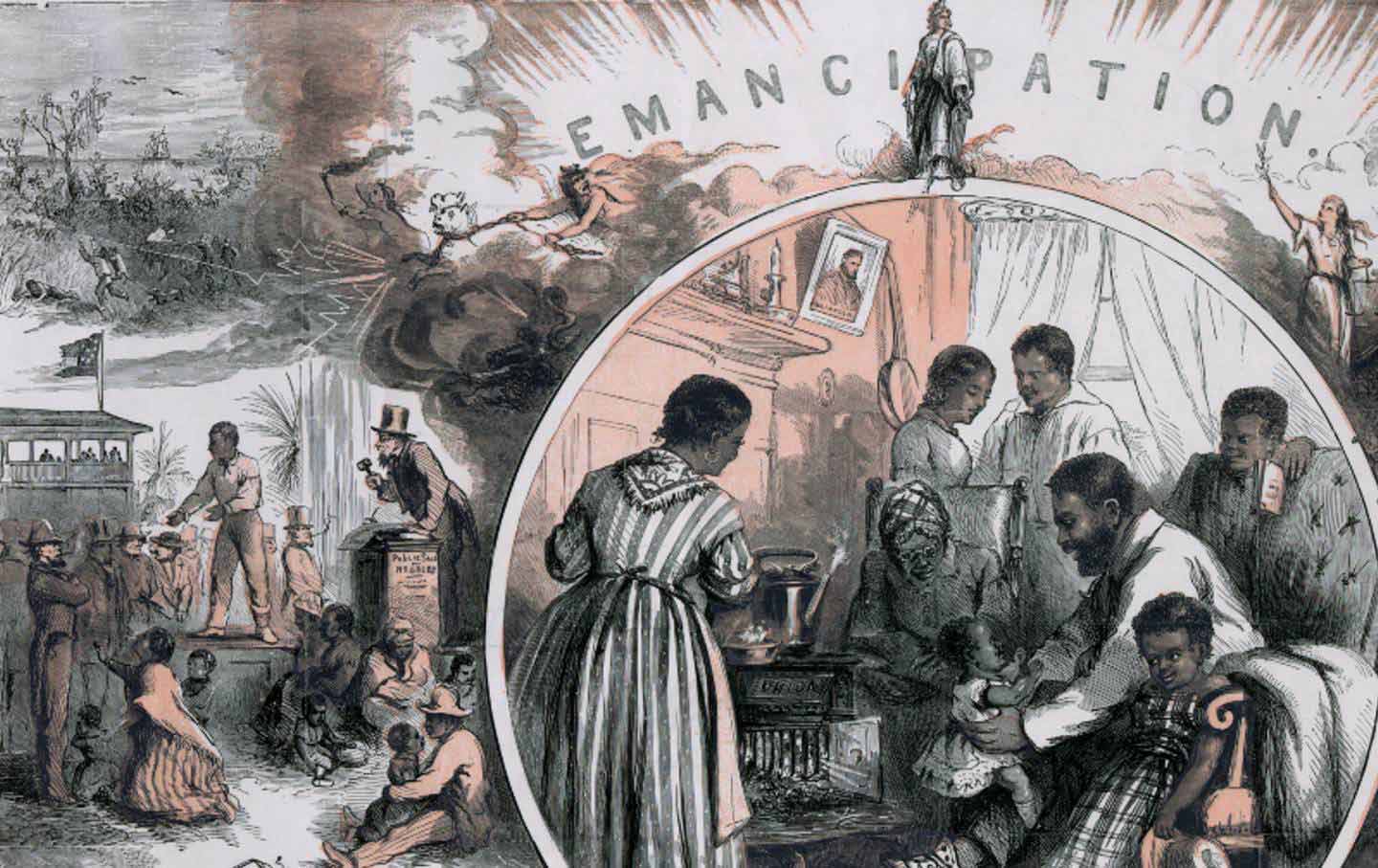
Slavery in an Age of Emancipation Slavery in an Age of Emancipation
Robin Blackburn’s sweeping history of slavery and freedom in the 19th century.

How Wisconsin Lost Control of the Strange Disease Killing Its Deer How Wisconsin Lost Control of the Strange Disease Killing Its Deer
Despite early containment efforts, chronic wasting disease has been allowed to run rampant in the state. That’s bad news for all of us.

The Prison Rodeo at the Heart of Legal Enslavement The Prison Rodeo at the Heart of Legal Enslavement
Angola prison workers make between 2 and 40 cents an hour. They also have a controversial outlet for recreation and to vend their wares at market rate: a rodeo.


